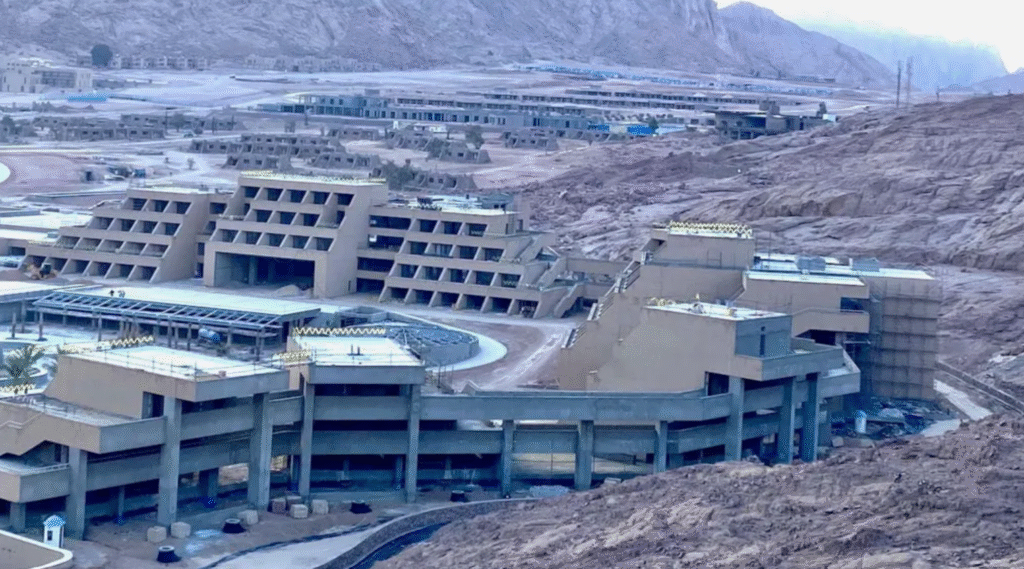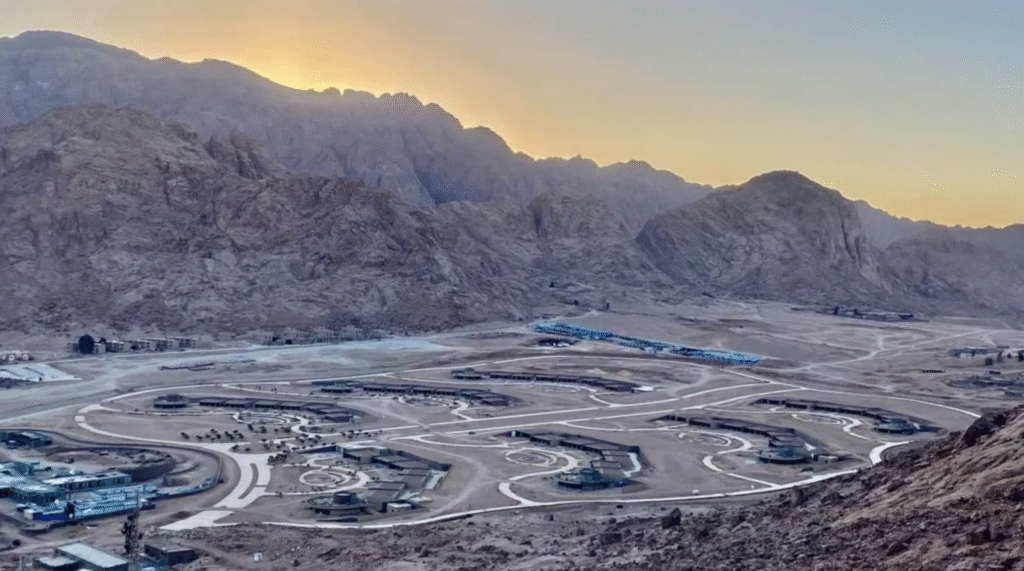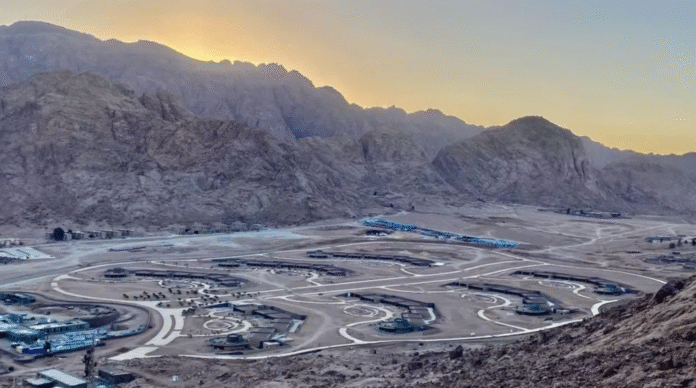Mount Sinai Luxury Resort Sparks Global Outcry
The announcement of a Mount Sinai luxury resort project has triggered outrage worldwide. Once a remote and deeply spiritual site, Mount Sinai, revered by Jews, Christians, and Muslims, is now at the center of a heated debate.
For centuries, pilgrims and travelers climbed Jabal Musa, guided by local Bedouins, to watch the sunrise and experience the silence of the desert’s rocky landscape. But today, bulldozers, cranes, and construction crews are reshaping this UNESCO World Heritage site into a mega-resort complete with luxury hotels, villas, shopping bazaars, and even a cable car.
Many fear this transformation could permanently damage both the environment and the sacred heritage that makes Mount Sinai unique.

Mount Sinai Luxury Resort and Its Sacred Significance
Mount Sinai, known locally as Jabal Musa, is no ordinary mountain. It is believed to be the place where Moses received the Ten Commandments, and where God spoke from the burning bush, according to both the Bible and the Quran.
At its foot lies the 6th-century St. Catherine’s Monastery, one of the oldest continuously operating Christian monasteries in the world, run by the Greek Orthodox Church. The site has long been seen as a symbol of peace between Christians and Muslims, even housing a mosque within its walls.
For generations, this sacred mountain has been a place of reflection, prayer, and cultural exchange. But now, with the construction of the Mount Sinai luxury resort, critics warn that spirituality may soon give way to commercial tourism.
Mount Sinai Luxury Resort Threatens Bedouin Communities
One of the most controversial aspects of the mega-project is its impact on the indigenous Bedouin people, particularly the Jebeleya tribe, known as the “Guardians of St. Catherine.”
-
Their eco-camps and homes have been demolished, often with little or no compensation.
-
Some families were forced to exhume graves to make way for parking lots.
-
Their traditional way of life, built around guiding pilgrims and preserving the land, is being erased.
As British travel writer Ben Hoffler explains:
“This is not development as the Jebeleya see it… it’s a top-down project serving outsiders’ interests, not the local community.”
The Mount Sinai luxury resort risks uprooting centuries of Bedouin heritage in favor of a model of tourism they neither consented to nor benefit from.
Mount Sinai Luxury Resort and the Greek Orthodox Dispute
The Greek Orthodox Church has strongly opposed parts of the project, especially after an Egyptian court ruled in May 2024 that St. Catherine’s Monastery lies on state land.
Greek Archbishop Ieronymos II condemned the decision as an “existential threat,” calling it a seizure of monastery property. Archbishop Damianos of St. Catherine’s described it as a “grave blow” before resigning amid controversy.
Diplomatic tensions flared between Athens and Cairo, but eventually, both countries signed a declaration promising to protect the monastery’s heritage.
Still, critics say the damage from the Mount Sinai luxury resort construction is already reshaping the cultural landscape around the sacred site.

Mount Sinai Luxury Resort: Development vs. Preservation
Egypt’s government promotes the project, known as the “Great Transfiguration Project,” as a gift to the world. It promises to bring sustainable tourism, new eco-lodges, and upgraded infrastructure such as an expanded airport.
Housing Minister Sherif el-Sherbiny declared that the development will:
-
Boost tourism
-
Preserve environmental character
-
Provide jobs and accommodations
But so far, conservationists and UNESCO remain unconvinced. In 2023, UNESCO urged Egypt to halt construction until proper environmental and cultural studies were completed. That request has been ignored.
Mount Sinai Luxury Resort Raises Environmental Concerns
Mount Sinai’s rugged beauty has long been praised by UNESCO for the way it blends remoteness, spirituality, and nature. But campaigners argue that the resort threatens to destroy this delicate balance.
The Plain of el-Raha, where the Israelites are said to have waited for Moses, is now being dug up for roads and hotels.
Environmentalists argue that the project could permanently scar the mountain landscape, replace silence with crowds, and compromise the very essence that draws pilgrims to Mount Sinai.
Mount Sinai Luxury Resort and Egypt’s Tourism Push
Egypt’s tourism sector, once thriving, has struggled in recent years due to COVID-19, regional instability, and the war in Gaza. The government’s goal is to reach 30 million visitors by 2028.
From Cairo’s perspective, mega-projects like the Mount Sinai luxury resort are essential to revitalize the economy. This follows a long history of large-scale tourism developments, such as the Red Sea resorts in Sharm el-Sheikh.
But as Egyptian journalist Mohannad Sabry points out:
“Industrial tourism pushes Bedouin communities aside, not just out of business, but physically out of their land.”
The Sinai peninsula, once a place of Bedouin stewardship, risks becoming another example of outsiders profiting at the cost of local heritage.

